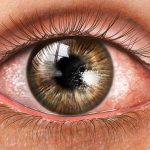Novartis in Advanced Talks to Acquire MorphoSys: A Potential Game-Changer in Cancer Treatment

In a significant development, pharmaceutical giant Novartis AG is reportedly in advanced talks to acquire MorphoSys AG, a prominent developer of cancer treatments with a market value of 1.6 billion euros ($1.7 billion). This news, revealed by two anonymous sources on Monday, suggests that Novartis has emerged as the preferred suitor, having outpaced rival drug maker Incyte Corp in the race to acquire MorphoSys.
Despite the prevailing negotiations, there is no certainty that the deal will conclude successfully, and details about the acquisition price remain undisclosed. The anonymous sources, familiar with the matter, declined to provide specific information, emphasizing the confidential nature of the ongoing discussions.
As of now, representatives from Novartis, MorphoSys, and Incyte have not responded to requests for comments, maintaining a tight lid on the intricate details of the potential acquisition.
The news of Novartis’ interest has already made a significant impact, causing MorphoSys shares to surge by more than 40% on Monday. This heightened market response underscores the strategic importance of this potential acquisition in the pharmaceutical landscape.
Headquartered in Planegg, Germany, MorphoSys specializes in developing drugs to combat deadly forms of cancers, including myelofibrosis, a rare type of bone marrow cancer, and various knotty lymphomas. Among its revenue generators is the lymphoma drug Monjuvi, sold through a profit-sharing agreement with Incyte. MorphoSys recently reported that Monjuvi’s U.S. net product sales reached $92 million in 2023, with expectations for sales ranging between $80 million and $95 million in 2024. The company anticipates further revenue growth as Monjuvi secures approvals for additional indications.
One of MorphoSys’ promising drugs, Pelabresib, acts as an inhibitor of proteins linked to the development and progression of myelofibrosis. Although the drug faced setbacks in November when it missed certain key goals in clinical trials, MorphoSys remains resilient, expressing plans to seek approval for commercializing Pelabresib in the U.S. and Europe in 2024.
To streamline operations and reduce costs, MorphoSys initiated a restructuring process in early 2023, shutting down some of its early-stage research programs and laying off approximately 17% of its workforce. Currently employing nearly 550 people in its U.S. and German offices, MorphoSys continues to navigate challenges while maintaining its commitment to advancing breakthrough cancer treatments.
On the other hand, Novartis has been actively cutting jobs and costs, exemplified by the spin-off of its generic drugs business Sandoz last year. The company’s strategic focus revolves around fewer therapeutic areas and geographic markets. While revenue gains from some key drugs fell short of market expectations in the fourth quarter of 2023, Novartis remains a powerhouse in the pharmaceutical industry, with revenue growth driven by drugs such as Entresto for heart failure, Kesimpta for multiple sclerosis, and Kisqali for breast cancer.
In an interview with CNBC last month, Novartis CEO Vasant Narasimhan shed light on the company’s overarching mergers and acquisitions strategy, emphasizing a focus on deals involving assets valued below $5 billion.
The potential acquisition of MorphoSys by Novartis marks a significant development in the pharmaceutical landscape, with far-reaching implications for the future of cancer treatment. As the negotiations unfold, the industry awaits further details on the terms and conditions that will shape this transformative collaboration between two key players in the fight against cancer.





